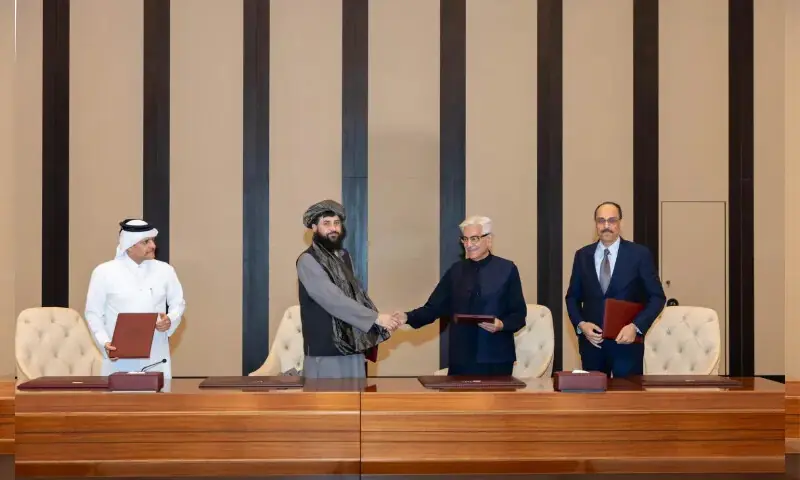Editorial
The Istanbul talks between Pakistan and Afghanistan were expected to ease rising tensions along the border — but they have instead exposed the growing mistrust and competing expectations that define this uneasy relationship. Despite mediation efforts, no breakthrough has emerged. Pakistan has demanded a written guarantee from the Taliban government to curb cross-border terrorism, while Kabul has reportedly linked cooperation to recognition of its regime and renewed economic aid.
For Pakistan, the demand is not merely political — it is existential. Cross-border attacks on security personnel and civilians have increased sharply, testing national patience and undermining border security. Islamabad has the right, under international law, to protect its sovereignty and people from militant aggression. Afghanistan must understand that friendly relations cannot coexist with terrorism flowing across the border.
Follow Republic Policy on YouTube
The talks in Istanbul, already tense, reportedly hit a snag when Türkiye’s intelligence chief briefly left the venue, symbolising the fragility of the dialogue. While diplomatic engagement must continue, Pakistan should remain clear-eyed about its red lines. Any compromise on national security would embolden non-state actors and weaken regional peace efforts.
Follow Republic Policy on X (Twitter)
The path forward lies in firm diplomacy backed by credible deterrence. Afghanistan’s stability matters to Pakistan — but not at the expense of its own security. The message must be unmistakable: cross-border terrorism will invite decisive response, not endless negotiation. Peace is still possible, but it requires sincerity, accountability, and a shared commitment to eliminate militancy once and for all.
















